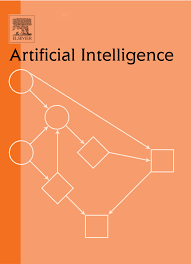AIJ
Publication Types:

Planning-based knowing how: a unified approach
Various logical notions of know-how have been recently proposed and studied in the literature based on different types of epistemic planning in different frameworks. This paper proposes a unified logical framework to incorporate the existing and some new notions of know-how. We define the semantics of the know-how operator using a unified notion of epistemic planning with parameters of different types of plans specified by a programming language. Surprisingly, via a highly unified completeness proof, we show that all the ten intuitive notions of plans discussed in this paper lead to exactly the same know-how logic, which is proven to be decidable. We also show that over finite models, the know-how logic based on knowledge-based plans requires an extension with an axiom capturing the compositionality of the plans. In the context of epistemic planning, our axiomatization results reveal the core principles behind the very idea of epistemic planning, independent of the particular notion of plans. Moreover, since epistemic planning can be expressed by the know-how modality in our object language, we can greatly generalize the planning problems that can be solved formally by model checking various formulas in our know-how language.

A dynamic epistemic framework for reasoning about conformant probabilistic plans
Abstract: In this paper, we introduce a probabilistic dynamic epistemic logical framework that can be applied for reasoning and verifying conformant probabilistic plans in a single agent setting. In conformant probabilistic planning (CPP), we are looking for a linear plan such that the probability of achieving the goal after executing the plan is no less than a given threshold probability $\delta$. Our logical framework can trace the change of the belief state of the agent during the execution of the plan and verify the conformant plans. Moreover, with this logic, we can enrich the CPP framework by formulating the goal as a formula in our language with action modalities and probabilistic beliefs. As for the main technical results, we provide a complete axiomatization of the logic and show the decidability of its validity problem.

Hidden protocols: Modifying our expectations in an evolving world
Abstract. When agents know a protocol, this leads them to have expectations about future observations. Agents can update their knowledge by matching their actual observations with the expected ones. They eliminate states where they do not match. In this paper, we study how agents perceive protocols that are not commonly known, and propose a semantics-driven logical framework to reason about knowledge in such scenarios. In particular, we introduce the notion of epistemic expectation models and a propositional dynamic logic-style epistemic logic for reasoning about knowledge via matching agents’ expectations to their observations. It is shown how epistemic expectation models can be obtained from epistemic protocols. Furthermore, a characterization is presented of the effective equivalence of epistemic protocols. We introduce a new logic that incorporates updates of protocols and that can model reasoning about knowledge and observations. Finally, the framework is extended to incorporate fact-changing actions, and a worked-out example is given.
(Extended journal version of the TARK2011 paper)
